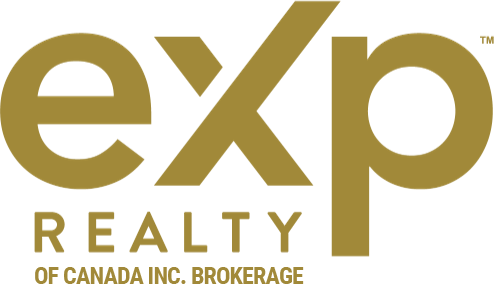Costs to Consider
The Cost of Using an Agent
In 99.9% of all cases, there is no cost associated with using us to help you with your home purchase. Typically, the person who is selling their home [the Seller] will pay a commission to the listing brokerage, and the listing brokerage offers a commission incentive for other real estate professionals who bring buyers to view the property and purchase it. Therefore, in most situations where we represent the Buyer, we are paid by the Seller or the Seller’s brokerage.
Deposit
Due at time of offer
A deposit will be required at the time of the offer to express your intent to purchase a home. We accept deposits in the form of written cheques or money orders, which will be delivered either to the Seller’s Brokerage or the Seller’s lawyer to be held in trust. We will discuss with you the appropriate amount of a deposit, but ensure that you have access to funds immediately as the deposit will be cashed by the Seller’s brokerage within 24 hours of accepting the offer. This deposit is 100% refunded if you are unable to fulfill any conditions (for example, a major issue arises during the home inspection and you no longer wish to purchase the property). If all goes well, however, this deposit will be integrated into your down payment.
Inspection Fees
Due once offer is accepted
Most offers to purchase property are conditional on the inspection of the subject property by a qualified home inspector. Home inspections can range anywhere from $350-$1000, depending on the type of inspection you require. Most home inspections, on average, are between $350-$500. Home inspectors look at the property with expert eyes and identify any issues that are present or may arise in the future. Occasionally, other types of inspections are required, such as: pool inspections, septic inspections and water potability tests. These inspections are conducted by industry professionals and are not included in the home inspection fees.
Down Payment
Due on closing
A minimum down payment is required when purchasing a property. Currently, the minimum down payment required is 5% of the purchase price of the property. However, if you have less than 20% to put towards your home as a down payment, then lenders will require you to have CMHC insurance.
CMHC Insurance
Due on closing
The Canada Mortgage and Housing Corporation (CMHC) provides mortgage insurance for lenders who are financing homes that are purchased with less than a 20% down payment. This insurance protects lenders from defaulted mortgages and also allows consumers to purchase homes with a minimum down payment and still receive interest rates comparable to those with a 20% downpayment. The premium can either be paid in a lump sum or added to a mortgage and included in the payments. For more information, visit the CMHC Website.
Legal Fees
Due on closing
Once you have placed an offer to purchase a home and have fulfilled all necessary conditions (such as home inspection and financing), you will have to retain the services of a qualified real estate lawyer in order to close the transaction. For more information on lawyer fees, please call your real estate lawyer to discuss charges associated with closing a property. We also have a list of lawyers that we enjoy working with and refer frequently, so feel free to ask us for some good contacts for real estate lawyers if you don’t already have one in mind.
Title Insurance
Due on closing
Title insurance can be purchased through your lawyer. Title insurance provides coverage for fraud, forgery, missing heirs, unregistered easements, rights of way, construction liens, legal costs associated with defending title to the property, access rights and conflicting interests in the property. Talk to your real estate lawyer for more information on title insurance.
Status Certificate
Due on closing
If you are considering purchasing a condominium property, any offers will be conditional on the review of the status certificate by a lawyer. The status certificate contains important information regarding the condominium’s reserve fund and any plans for repairs or maintenance to the common areas of the condominium building, as well as any complaints that have been registered against the unit in question. The status certificate also contains the rules and regulations of the condominium building, and verifies the parking and storage locker information, if applicable. The cost of ordering the status certificate is approximately $100.
Condominium Fees
Due monthly after closing
Condominiums are subject to a monthly or annual condominium fee to cover costs associated with maintaining the common areas of the condominium. These fees can include building insurance, exterior maintenance, management fees, landscaping, security, elevators, fire-code upgrades, recreation facilities (such as common area pools, hot tubs, saunas, exercise centres etc) and more. If you’re considering purchasing a condominium, be aware that a monthly fee is associated with the ownership. The amount of the fees differs between condominium buildings, and some condominium fees also include utilities such as heat, hydro and water.
Land Transfer Tax
Due on closing
Land transfer tax is payable on closing, and is calculated based on the purchase price of the property. If you are a first time home buyer, you may be eligible for a rebate from the government.
Click here for more information on Land Transfer Tax
Click here for a Land Transfer Tax Calculator
Adjustments
Due on closing
There may be some costs associated with the property that have been pre-paid by the Seller (such as pre-paid utilities, property taxes, oil tank refuelling etc). These additional expenses are referred to as “adjustments” and are payable when the property is closed. These costs are calculated and negotiated by your lawyer.
Home Insurance
Due before closing
It is necessary to have home owner’s insurance prior to the date of closing. Most mortgage companies require you to purchase a home insurance policy as a condition of receiving financing. Check with your current insurance company for rates, and also shop around.
Other Expenses
Due as necessary
There are other costs that you should consider when purchasing property as well, such as:
- Appliances (if they are not included in the purchase of your home, or if they are too dated for your needs).
- Gardening, snow removal and landscaping equipment
- Moving expenses
- Window coverings
- Services and utility hook-up fees
- Repairs and renovations


